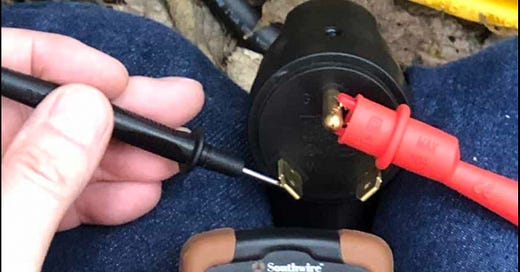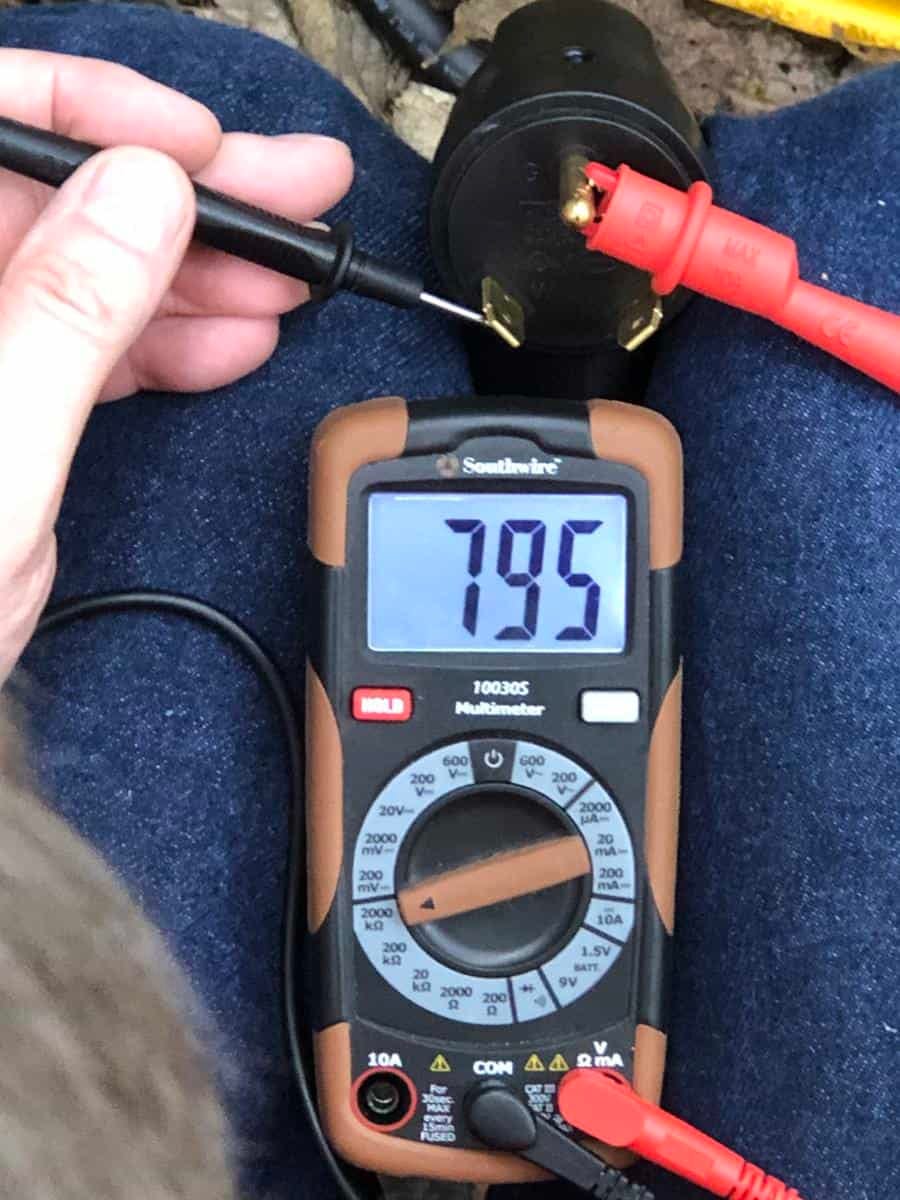Can Neutral/Ground bond testing be dangerous?
Not as long as you’re disconnected from shore power.
Greetings Mike,
If I understood a previous article you wrote there should be no connection between the ground and the neutral wires since there should not be a bonding screw installed, correct?
Are there any dangers that us RV'ers should be aware of if there is a neutral/ground connection when measuring from de-energized shore power cord?
Thanks for your clarification. - Ty
Hey Ty,
Great question. I believe you’re referring to testing for isolation resistance between the ground and neutral conductors of your RV using an ohmmeter? You can find that article HERE.
The answer is no, as long as you’re not connected to shore power somehow, there is no danger to you or your RV while performing this test, even if there was an accidental Neutral/Ground Bond in your RV load center.
However, you should also power down any Rinverter or onboard generator while performing this test, on the off chance there was a wiring issue that accidentally back-fed 120-volts AC into your shore power cord. But I think that would be highly unlikely…
Let’s play safe out there… Mike







Mike had mentioned in the past that some RV’s will trip a GFCI due to minor current leakage from all the electrical appliances and devices connected to the same pedestal circuit that is powering them. I think it was one of the main reasons for the NEC dropping the idea of requiring GFCI for 30-amp pedestal receptacles. From my point of view, it can be an easy test, but not one that will help locate a neutral-ground connection fault. All one needs to do is shut their main circuit breaker off, including all inverters and generators, and use some kind of dog bone adapter to plug their 50- or 30-amp RV into a 15- or 20-amp GFCI protected electrical outlet. If the RV trips the GFCI (main circuit breaker off), there may be a ground-neutral fault that deserves further investigation. If, however, the GFCI does not trip, there might still be some ground to neutral leakage, however, in my opinion, it is not sufficient to be overly concerned about. Mike might disagree and no neutral to ground leakage is acceptable, although that is not my opinion where small leakage currents exist.